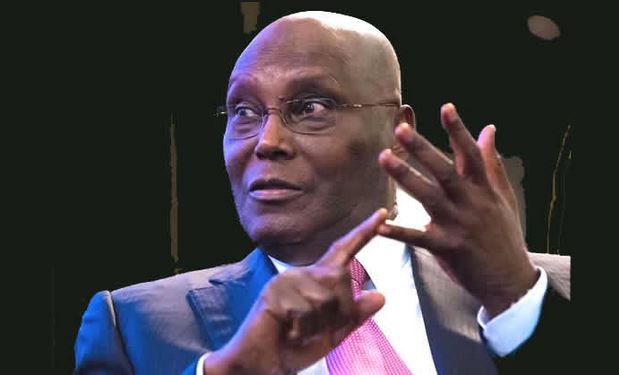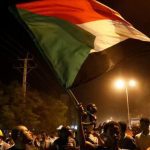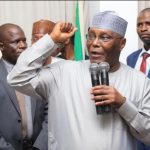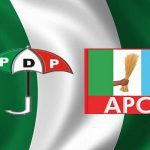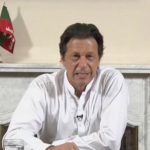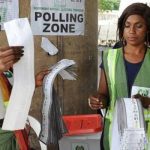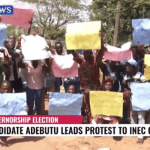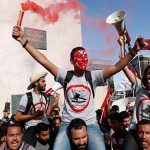Nigerian opposition presidential candidate Atiku Abubakar said on Wednesday he would consider an amnesty for corruption suspects in order to help recover billions of dollars stashed abroad by the country’s politicians and government officials.
Abubakar is the main challenger to President Muhammadu Buhari in the Feb.16 election, where corruption, security and the economy have been key issues. Buhari is hoping his anti-corruption agenda can win him a second term.
Nigerian state coffers have in past years been ransacked by government officials and their associates, and corruption is prevalent throughout society. Buhari was elected in 2015 in part on a promise to rid the country of graft.
The West African nation launched a whistleblower scheme two years ago entitling those who help find stolen assets to up to 5 percent of the recovered sums, part of a drive by Buhari to root out endemic corruption.
Abubakar said the amnesty program would encourage looters to voluntarily return some of the stolen funds badly needed to fund infrastructure investment and recommended sanctions for election rigging.
“Why can we not have an election fraud commission?” Abubakar said during a televised town hall meeting to woo voters.
“So that we bring to book any individual, whether a member of a political party, INEC (electoral commission), or security services who infringes.”
Abubakar and his vice presidential candidate Peter Obi were repeatedly challenged on their track records regarding corruption, and about investing government funds in private businesses, some of which they owned shares in, while in public office. Both candidates denied any allegations of graft.
He also said he would be more than willing to investigate allegations of corruption in senior ranks of the military, as the military faces shortages of weapons and other resources in its war against Islamist insurgencies.
Critics have often accused the Nigerian military’s senior officers of corruption, alleging that the graft drains resources and weapons from the northeast, where they are needed to fight advancing Islamist insurgencies.
Earlier on Wednesday Abubakar said in a speech he would create a $25 billion fund to support private sector investment in infrastructure if elected next month, as part of plans to revive the economy.
Nigeria’s oil-dependent economy, which vies with South Africa’s to be the largest in Africa, has performed below par since 2016, when it suffered its first recession in 25 years.
Nigerian opposition presidential candidate Atiku Abubakar said on Wednesday he would consider an amnesty for corruption suspects in order to help recover billions of dollars stashed abroad by the country’s politicians and government officials.
Abubakar is the main challenger to President Muhammadu Buhari in the Feb.16 election, where corruption, security and the economy have been key issues. Buhari is hoping his anti-corruption agenda can win him a second term.
Nigerian state coffers have in past years been ransacked by government officials and their associates, and corruption is prevalent throughout society. Buhari was elected in 2015 in part on a promise to rid the country of graft.
The West African nation launched a whistleblower scheme two years ago entitling those who help find stolen assets to up to 5 percent of the recovered sums, part of a drive by Buhari to root out endemic corruption.
Abubakar said the amnesty program would encourage looters to voluntarily return some of the stolen funds badly needed to fund infrastructure investment and recommended sanctions for election rigging.
“Why can we not have an election fraud commission?” Abubakar said during a televised town hall meeting to woo voters.
“So that we bring to book any individual, whether a member of a political party, INEC (electoral commission), or security services who infringes.”
Abubakar and his vice presidential candidate Peter Obi were repeatedly challenged on their track records regarding corruption, and about investing government funds in private businesses, some of which they owned shares in, while in public office. Both candidates denied any allegations of graft.
He also said he would be more than willing to investigate allegations of corruption in senior ranks of the military, as the military faces shortages of weapons and other resources in its war against Islamist insurgencies.
Critics have often accused the Nigerian military’s senior officers of corruption, alleging that the graft drains resources and weapons from the northeast, where they are needed to fight advancing Islamist insurgencies.
Earlier on Wednesday Abubakar said in a speech he would create a $25 billion fund to support private sector investment in infrastructure if elected next month, as part of plans to revive the economy.
Nigeria’s oil-dependent economy, which vies with South Africa’s to be the largest in Africa, has performed below par since 2016, when it suffered its first recession in 25 years.
Nigerian opposition presidential candidate Atiku Abubakar said on Wednesday he would consider an amnesty for corruption suspects in order to help recover billions of dollars stashed abroad by the country’s politicians and government officials.
Abubakar is the main challenger to President Muhammadu Buhari in the Feb.16 election, where corruption, security and the economy have been key issues. Buhari is hoping his anti-corruption agenda can win him a second term.
Nigerian state coffers have in past years been ransacked by government officials and their associates, and corruption is prevalent throughout society. Buhari was elected in 2015 in part on a promise to rid the country of graft.
The West African nation launched a whistleblower scheme two years ago entitling those who help find stolen assets to up to 5 percent of the recovered sums, part of a drive by Buhari to root out endemic corruption.
Abubakar said the amnesty program would encourage looters to voluntarily return some of the stolen funds badly needed to fund infrastructure investment and recommended sanctions for election rigging.
“Why can we not have an election fraud commission?” Abubakar said during a televised town hall meeting to woo voters.
“So that we bring to book any individual, whether a member of a political party, INEC (electoral commission), or security services who infringes.”
Abubakar and his vice presidential candidate Peter Obi were repeatedly challenged on their track records regarding corruption, and about investing government funds in private businesses, some of which they owned shares in, while in public office. Both candidates denied any allegations of graft.
He also said he would be more than willing to investigate allegations of corruption in senior ranks of the military, as the military faces shortages of weapons and other resources in its war against Islamist insurgencies.
Critics have often accused the Nigerian military’s senior officers of corruption, alleging that the graft drains resources and weapons from the northeast, where they are needed to fight advancing Islamist insurgencies.
Earlier on Wednesday Abubakar said in a speech he would create a $25 billion fund to support private sector investment in infrastructure if elected next month, as part of plans to revive the economy.
Nigeria’s oil-dependent economy, which vies with South Africa’s to be the largest in Africa, has performed below par since 2016, when it suffered its first recession in 25 years.
Nigerian opposition presidential candidate Atiku Abubakar said on Wednesday he would consider an amnesty for corruption suspects in order to help recover billions of dollars stashed abroad by the country’s politicians and government officials.
Abubakar is the main challenger to President Muhammadu Buhari in the Feb.16 election, where corruption, security and the economy have been key issues. Buhari is hoping his anti-corruption agenda can win him a second term.
Nigerian state coffers have in past years been ransacked by government officials and their associates, and corruption is prevalent throughout society. Buhari was elected in 2015 in part on a promise to rid the country of graft.
The West African nation launched a whistleblower scheme two years ago entitling those who help find stolen assets to up to 5 percent of the recovered sums, part of a drive by Buhari to root out endemic corruption.
Abubakar said the amnesty program would encourage looters to voluntarily return some of the stolen funds badly needed to fund infrastructure investment and recommended sanctions for election rigging.
“Why can we not have an election fraud commission?” Abubakar said during a televised town hall meeting to woo voters.
“So that we bring to book any individual, whether a member of a political party, INEC (electoral commission), or security services who infringes.”
Abubakar and his vice presidential candidate Peter Obi were repeatedly challenged on their track records regarding corruption, and about investing government funds in private businesses, some of which they owned shares in, while in public office. Both candidates denied any allegations of graft.
He also said he would be more than willing to investigate allegations of corruption in senior ranks of the military, as the military faces shortages of weapons and other resources in its war against Islamist insurgencies.
Critics have often accused the Nigerian military’s senior officers of corruption, alleging that the graft drains resources and weapons from the northeast, where they are needed to fight advancing Islamist insurgencies.
Earlier on Wednesday Abubakar said in a speech he would create a $25 billion fund to support private sector investment in infrastructure if elected next month, as part of plans to revive the economy.
Nigeria’s oil-dependent economy, which vies with South Africa’s to be the largest in Africa, has performed below par since 2016, when it suffered its first recession in 25 years.
Nigerian opposition presidential candidate Atiku Abubakar said on Wednesday he would consider an amnesty for corruption suspects in order to help recover billions of dollars stashed abroad by the country’s politicians and government officials.
Abubakar is the main challenger to President Muhammadu Buhari in the Feb.16 election, where corruption, security and the economy have been key issues. Buhari is hoping his anti-corruption agenda can win him a second term.
Nigerian state coffers have in past years been ransacked by government officials and their associates, and corruption is prevalent throughout society. Buhari was elected in 2015 in part on a promise to rid the country of graft.
The West African nation launched a whistleblower scheme two years ago entitling those who help find stolen assets to up to 5 percent of the recovered sums, part of a drive by Buhari to root out endemic corruption.
Abubakar said the amnesty program would encourage looters to voluntarily return some of the stolen funds badly needed to fund infrastructure investment and recommended sanctions for election rigging.
“Why can we not have an election fraud commission?” Abubakar said during a televised town hall meeting to woo voters.
“So that we bring to book any individual, whether a member of a political party, INEC (electoral commission), or security services who infringes.”
Abubakar and his vice presidential candidate Peter Obi were repeatedly challenged on their track records regarding corruption, and about investing government funds in private businesses, some of which they owned shares in, while in public office. Both candidates denied any allegations of graft.
He also said he would be more than willing to investigate allegations of corruption in senior ranks of the military, as the military faces shortages of weapons and other resources in its war against Islamist insurgencies.
Critics have often accused the Nigerian military’s senior officers of corruption, alleging that the graft drains resources and weapons from the northeast, where they are needed to fight advancing Islamist insurgencies.
Earlier on Wednesday Abubakar said in a speech he would create a $25 billion fund to support private sector investment in infrastructure if elected next month, as part of plans to revive the economy.
Nigeria’s oil-dependent economy, which vies with South Africa’s to be the largest in Africa, has performed below par since 2016, when it suffered its first recession in 25 years.
Nigerian opposition presidential candidate Atiku Abubakar said on Wednesday he would consider an amnesty for corruption suspects in order to help recover billions of dollars stashed abroad by the country’s politicians and government officials.
Abubakar is the main challenger to President Muhammadu Buhari in the Feb.16 election, where corruption, security and the economy have been key issues. Buhari is hoping his anti-corruption agenda can win him a second term.
Nigerian state coffers have in past years been ransacked by government officials and their associates, and corruption is prevalent throughout society. Buhari was elected in 2015 in part on a promise to rid the country of graft.
The West African nation launched a whistleblower scheme two years ago entitling those who help find stolen assets to up to 5 percent of the recovered sums, part of a drive by Buhari to root out endemic corruption.
Abubakar said the amnesty program would encourage looters to voluntarily return some of the stolen funds badly needed to fund infrastructure investment and recommended sanctions for election rigging.
“Why can we not have an election fraud commission?” Abubakar said during a televised town hall meeting to woo voters.
“So that we bring to book any individual, whether a member of a political party, INEC (electoral commission), or security services who infringes.”
Abubakar and his vice presidential candidate Peter Obi were repeatedly challenged on their track records regarding corruption, and about investing government funds in private businesses, some of which they owned shares in, while in public office. Both candidates denied any allegations of graft.
He also said he would be more than willing to investigate allegations of corruption in senior ranks of the military, as the military faces shortages of weapons and other resources in its war against Islamist insurgencies.
Critics have often accused the Nigerian military’s senior officers of corruption, alleging that the graft drains resources and weapons from the northeast, where they are needed to fight advancing Islamist insurgencies.
Earlier on Wednesday Abubakar said in a speech he would create a $25 billion fund to support private sector investment in infrastructure if elected next month, as part of plans to revive the economy.
Nigeria’s oil-dependent economy, which vies with South Africa’s to be the largest in Africa, has performed below par since 2016, when it suffered its first recession in 25 years.
Nigerian opposition presidential candidate Atiku Abubakar said on Wednesday he would consider an amnesty for corruption suspects in order to help recover billions of dollars stashed abroad by the country’s politicians and government officials.
Abubakar is the main challenger to President Muhammadu Buhari in the Feb.16 election, where corruption, security and the economy have been key issues. Buhari is hoping his anti-corruption agenda can win him a second term.
Nigerian state coffers have in past years been ransacked by government officials and their associates, and corruption is prevalent throughout society. Buhari was elected in 2015 in part on a promise to rid the country of graft.
The West African nation launched a whistleblower scheme two years ago entitling those who help find stolen assets to up to 5 percent of the recovered sums, part of a drive by Buhari to root out endemic corruption.
Abubakar said the amnesty program would encourage looters to voluntarily return some of the stolen funds badly needed to fund infrastructure investment and recommended sanctions for election rigging.
“Why can we not have an election fraud commission?” Abubakar said during a televised town hall meeting to woo voters.
“So that we bring to book any individual, whether a member of a political party, INEC (electoral commission), or security services who infringes.”
Abubakar and his vice presidential candidate Peter Obi were repeatedly challenged on their track records regarding corruption, and about investing government funds in private businesses, some of which they owned shares in, while in public office. Both candidates denied any allegations of graft.
He also said he would be more than willing to investigate allegations of corruption in senior ranks of the military, as the military faces shortages of weapons and other resources in its war against Islamist insurgencies.
Critics have often accused the Nigerian military’s senior officers of corruption, alleging that the graft drains resources and weapons from the northeast, where they are needed to fight advancing Islamist insurgencies.
Earlier on Wednesday Abubakar said in a speech he would create a $25 billion fund to support private sector investment in infrastructure if elected next month, as part of plans to revive the economy.
Nigeria’s oil-dependent economy, which vies with South Africa’s to be the largest in Africa, has performed below par since 2016, when it suffered its first recession in 25 years.
Nigerian opposition presidential candidate Atiku Abubakar said on Wednesday he would consider an amnesty for corruption suspects in order to help recover billions of dollars stashed abroad by the country’s politicians and government officials.
Abubakar is the main challenger to President Muhammadu Buhari in the Feb.16 election, where corruption, security and the economy have been key issues. Buhari is hoping his anti-corruption agenda can win him a second term.
Nigerian state coffers have in past years been ransacked by government officials and their associates, and corruption is prevalent throughout society. Buhari was elected in 2015 in part on a promise to rid the country of graft.
The West African nation launched a whistleblower scheme two years ago entitling those who help find stolen assets to up to 5 percent of the recovered sums, part of a drive by Buhari to root out endemic corruption.
Abubakar said the amnesty program would encourage looters to voluntarily return some of the stolen funds badly needed to fund infrastructure investment and recommended sanctions for election rigging.
“Why can we not have an election fraud commission?” Abubakar said during a televised town hall meeting to woo voters.
“So that we bring to book any individual, whether a member of a political party, INEC (electoral commission), or security services who infringes.”
Abubakar and his vice presidential candidate Peter Obi were repeatedly challenged on their track records regarding corruption, and about investing government funds in private businesses, some of which they owned shares in, while in public office. Both candidates denied any allegations of graft.
He also said he would be more than willing to investigate allegations of corruption in senior ranks of the military, as the military faces shortages of weapons and other resources in its war against Islamist insurgencies.
Critics have often accused the Nigerian military’s senior officers of corruption, alleging that the graft drains resources and weapons from the northeast, where they are needed to fight advancing Islamist insurgencies.
Earlier on Wednesday Abubakar said in a speech he would create a $25 billion fund to support private sector investment in infrastructure if elected next month, as part of plans to revive the economy.
Nigeria’s oil-dependent economy, which vies with South Africa’s to be the largest in Africa, has performed below par since 2016, when it suffered its first recession in 25 years.

